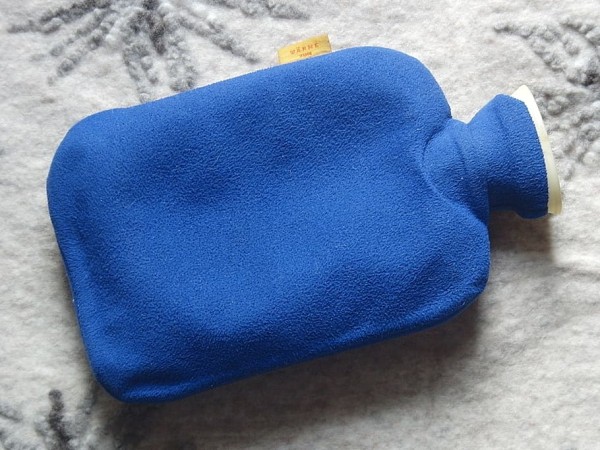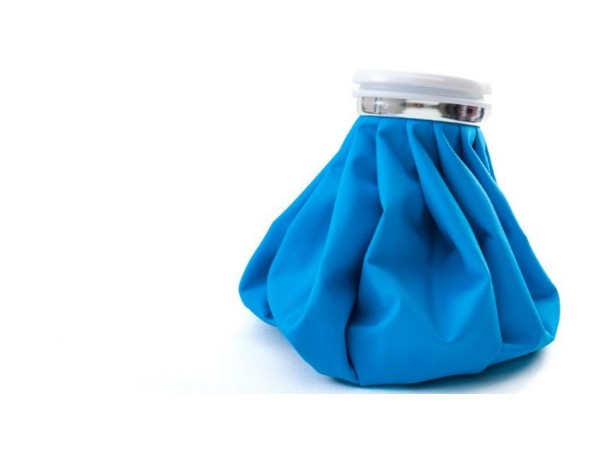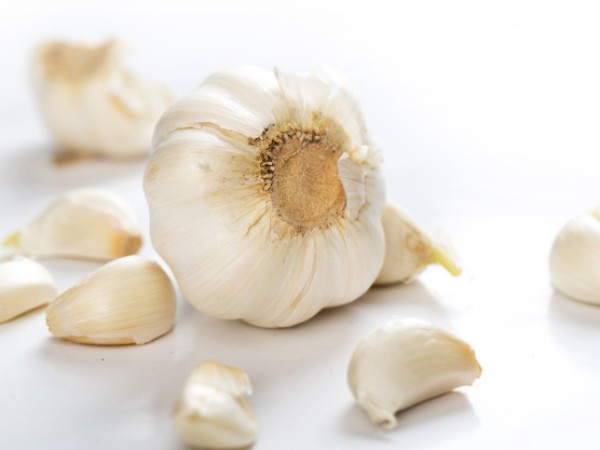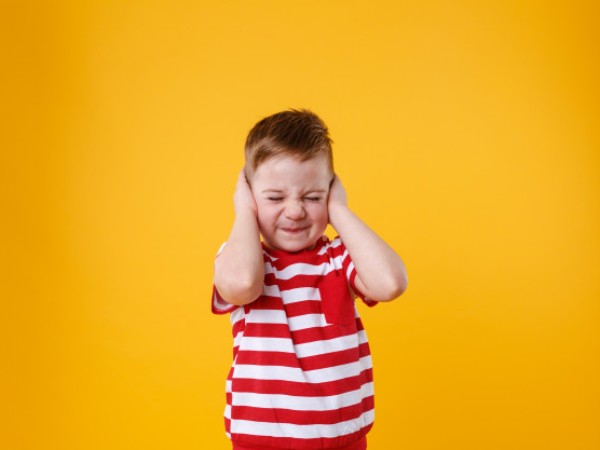
Home Remedies For Ear Pain Caused By Cold
According to experts, the best way to treat the cold symptoms and wait out the infection. Certain home remedies are also beneficial in easing ear pain.

1. Warm Compress
One of the best and effective remedies for ear pain caused by a cold, carefully applying a heating pad or hot pack can help reduce inflammation and pain in the ear [3].
How to do: Apply a hot pad to the ear for 20 minutes. You can also touch the neck and throat with the hot pad for best results.
Precaution: Make sure that the heating pad is only warm and avoid falling asleep while using a heating pad.

2. Cold Compress
[Image courtesy: The quint]
Applying a cold pack on your ears can help reduce the pain caused by the earache. The cold should not be extreme so that it does not hurt or cause a pinching feeling. Never apply ice directly to a child’s skin [4].
How to do: Wrap an ice cube in paper towels or freeze a cold pack and then cover it with a light cloth. Hold this to the ear and the area immediately under the ear for 20 minutes for relief.
Precaution: For some people, alternating between a cold and hot compress can be more effective in treating the ear pain caused by cold. One can alternate between 20 minutes of hot, followed by 20 minutes of cold compress [5].

3. Garlic
The pain-relieving quality of garlic is widely-known and proven [6]. The antimicrobial properties in garlic have been shown to be effective in treating infections and also in preventing it. Eating a clove of garlic every day has been shown to help prevent the onset of ear infections [7]. You can use garlic ear drops to reduce the pain caused by the earache.
How to do: Cook two or three cloves in two tablespoons of mustard or sesame seed oil until brown. Strain this mix and apply a drop or two to each ear.
Precaution: Garlic should NOT be used as a substitute for antibiotics, instead, can add garlic to their foods to speed up relief.
 ‘We Will Survive This Together’; Doctors Respond To COVID-19
‘We Will Survive This Together’; Doctors Respond To COVID-19

4. Olive Oil
A few drops of olive oil is said to help ease ear pain caused by a common cold. Although more studies are required to prove the effectiveness of this method, some doctors suggest the olive oil method to be effective in remedying ear pain [8].
READ RELATED: How to give blood in UK: Where can I donate to NHS? What is my type?
How to do: Lightly warm a spoon of olive oil, let it cool down a bit and put a few drops of warm olive oil in the ear with pain.
Precaution: Olive oil or ear drops should NOT be used in people who have ear tubes or a ruptured eardrum.

5. Onion
Some studies show that onions are effective in fighting a cold and help reduce ear pain [9]. Onions contain a flavonoid called quercetin that has anti-inflammatory properties and may help ease the pain [10].
How to do: Heat onion in the microwave for a minute or two and strain the liquid. Apply 4-5 drops in the ear with pain and lie down for 10 minutes; this will allow the liquid to flow out of the ear.
Precaution: Onions should NOT be used as a substitute for antibiotics.

7. Massage
Gently massaging the affected area around the ear can help provide some relief from the ear pain. This is especially effective for ear pain that radiates from teeth or jaw or one that causes a headache [13]. Massaging can help drain the excess fluid from the ears and prevent the pain from worsening.
How to do: One can massage the surrounding muscles, such as, if the area behind the ear hurts, massage the muscles of the jaw and neck.
Some of the other effective measures for relief from ear pain caused by a common cold are as follows [14]:
- Over-the-counter medication such as ibuprofen, acetaminophen and aspirin can help temporarily reduce the pain.
- Ear drops.
- Sucking can help reduce pressure in the Eustachian tubes (the canal that connects the middle ear to the nasal cavity) and provide relief. One can suck on hard candy or cough drops.
Precaution: It is NOT safe to give aspirin to babies and young children.

Other Symptoms Of A Common Cold
Symptoms of a common cold usually appear one to three days after exposure to the virus [15].
- Congestion
- Cough
- Sore throat
- Runny or stuffy nose
- Mild body aches or a headache
- Sneezing
- Minor fever
- Feeling unwell (malaise)

On A Final Note…
Developing ear pain when having a cold is normal and in most cases, it resolves on their own. Using medications and home remedies can help reduce the pain and provide you with some relief. If your ear pain lasts for a long time, consult a doctor.
In children under age eight and adults who smoke, catching a cold can also lead to a second infection inside the ears when the bacteria causes the pus and fluid to fill up in the space behind the eardrum. An ear infection is somewhat similar to the earache caused by a cold, except the pain is likely to be sharper and appears suddenly.
Note: Avoid taking common cold medications and pain relievers at the same time.
Source: boldsky blog






